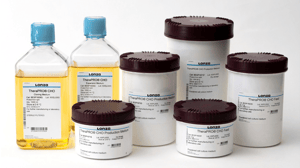The deal sees contract development manufacturing organization (CDMO) Batavia (acquired by Korea’s CJ Cheiljedang in November 2021) partner with clinical stage biopharmaceutical firm Candel to advance development and manufacturing of CAN-3110, an oncolytic viral immunotherapy for glioma brain tumors. The candidate is based on a replication attenuated Herpes Simplex Virus (HSV).
The CDMO will use its HIP-Vax technology to advance a scalable, enhanced, and robust production process for Candel. In turn, the pair will aim to produce CAN-3110 for toxicity studies as well as establishing Good Manufacturing Practice (GMP) process appropriate for future clinical trials.
“HIP-Vax is a manufacturing platform which uses innovative bioprocess intensification technologies to shorten production process timelines, reduce the amount of labor and consumables required (OPEX) and reduce the facility footprint (CAPEX),” a spokesperson for Batavia told BioProcess Insider.
“The production process uses a novel bioreactor design (scale-X), able to support high cell densities and vector yields per bioreactor volume. In addition, high efficiency of downstream recovery with limited process steps results in an optimized purification process. As a result, HIP-Vax allows significant miniaturization of the manufacturing facility through which commercial manufacture at lab scale is possible, thereby significantly reducing the cost of goods for the manufacture of viral vectors.”
Furthermore, CAN-3310 received FDA Fast-Track Designation in February for rapid development for the immunotherapy candidate to improve overall survival in individuals with recurrent high-grade glioma (HGG).
Process development activities will be carried out at Batavia’s facility in Woburn, Massachusetts. Once complete, the firm’s team in The Netherlands will be responsible for manufacturing the clinical product at its clean room facility.
“The alliance between Batavia and Candel is envisioned to be a long range one. Anticipating the release of the upcoming clinical batch next year, we aspire to take this collaboration further and assume responsibility for commercial manufacturing of this therapeutic candidate,” the spokesperson said.









